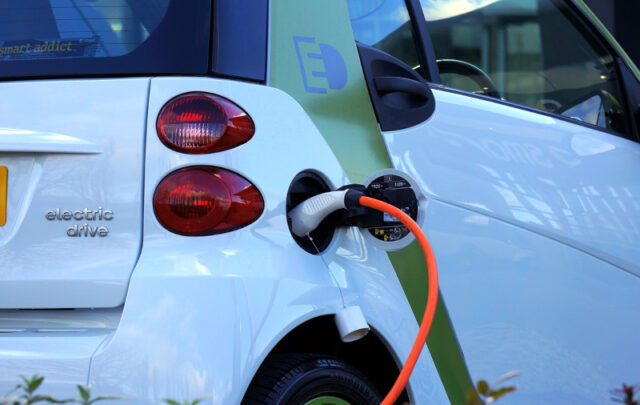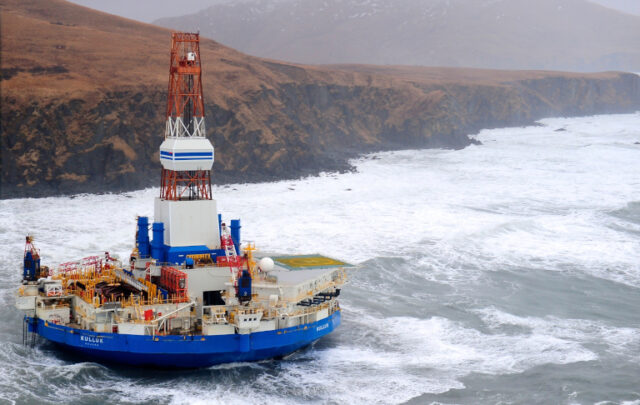The Gulf of Mexico oil blowout carries the emotional wallop and learning potential of a near-death experience. First, it certifies that the age of cheap and plentiful oil is over. Second, it reveals that our collective faith in technology to overcome any challenge posed by nature is a dangerous delusion. Third, it may be the event that sets our nation on the path to genuine economic and ecological sustainability.
To understand why the age of cheap and plentiful oil is over we must ask why BP was drilling for oil in a foreboding environment. The answer has two parts: 1) the giant deposits of easy to reach oil on land have been exploited, so it’s drill in harsh environments or nothing; and 2) despite claims by proponents of various petroleum alternatives and renewables, we have no viable, ready to go scalable substitutes for oil.
Recall that in 2006 mainstream energy analysts claimed that the “Jack 2” deep-water discovery of oil in the Gulf of Mexico postponed indefinitely the peak in worldwide petroleum production. What they did not report was that the cost of retrieving this oil was significantly higher than on land because it was in a difficult to access environment; nor did they take into account the technological challenges –which are now apparent- of safely extracting oil entombed deep beneath sea level. Finally, they did not place the amount of oil in context; for example, the Jack 2 well was estimated to have 15 billion barrels of oil. This sounds like a great deal until one knows that the world consumes 30 billion barrel a year and the US about 7 billion. In other words, we would have to discover the equivalent of 5 or 6 Saudi Arabias to avoid a world peak in oil production this century.
This leads to an admission that we do not have the technology to securely drill in deep waters. Some scientists have been warning that the blowout protector system, which has failed in the Deepwater Horizon well, was vulnerable. Here we come to the interaction of technology, human hubris and the desperate pursuit of oil. Evidence is beginning to surface that –as with other disasters- corners were cut, tests were not done, warnings were ignored, there was no worst-case scenario plan, and whistleblowers were silenced.
The most profound shock to our nation’s psyche, however, stems from the inability to stop the oil. How can it be that we have no technology to halt this torrent of ecological death and economic ruin? Thus we have the Internet brimming with “solutions” applying cartoonish brute force –sink a destroyer or detonate a nuclear bomb- to seal the gushing oil. We should not discount the nightmarish possibility that this well may blow itself out, meaning humans will watch helplessly as oil surges into the Gulf for months until 5,000 feet of saltwater pressure halts the outflow.
Finally, Deepwater Horizon may prove to be a tipping point that focuses us on fundamental questions about the relationship between ecological and economic sustainability. Those who lustily shout “Drill, baby, drill,” are exposed as atavistic sloganeers. They believe that the amount of offshore oil can keep business as usual –economic growth- going and make us independent of foreign oil. It can do neither; all one need do is look at the contrast between stagnant supply and growing consumption. The “Drill, baby, drill,” brigade will divide into those who get in touch with reality and those who descend into cognitive dissonance.
As for the environmentalists, many blithely say, “let’s use renewables.” They, too, must confront the contradictions Deepwater Horizon exposes in their worldview. Many will intensify their call for banning offshore drilling on the mistaken grounds that renewable energy can scale up immediately to replace oil –it cannot. Even if Green energy solutions can become scalable, we do not know how dependent their creation, installation and maintenance is upon fossil fuels; and a scalable renewables infrastructure will take 10-20 years to build out.
We will not know our status and future prospects –and that of the earth that supports all life- until the full extent of the ecological and economic damages are assessed. Nevertheless, it is clear that if our government rationalizes this as a correctable error and goes ahead with deepwater drilling, we will have learned nothing. The empirical lesson from this is that there is no technology to escape the limits to growth; the spiritual lesson is that accepting this is the beginning of renewal.






